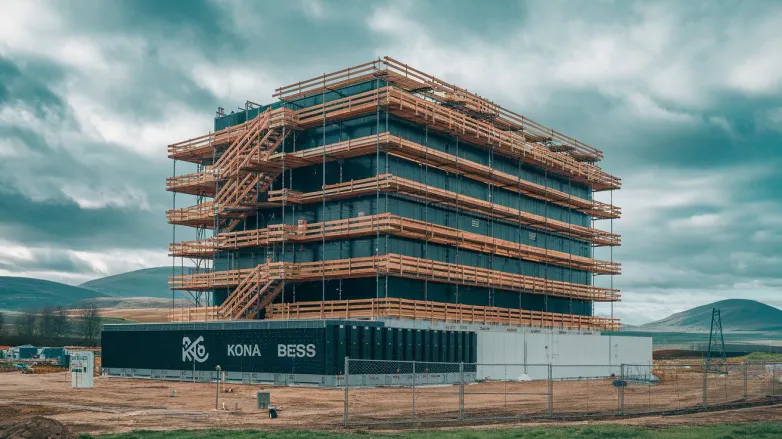Kona Energy Gains Approval for 228-MW Scottish BESS
- Kona Energy's Smeaton BESS aims to revolutionize energy storage in Scotland, boosting renewables and cutting carbon emissions by over 15,000 tonnes yearly. Energizing the future sustainably!

Kona Energy has received approval from the Scottish Government for its 228-MW/456-MWh battery energy storage system (BESS) project near Dalkeith in East Lothian, named Smeaton BESS. The facility is designed to store energy from renewable sources and release it during peak demand, aiming to reduce carbon dioxide emissions by 15,368 tonnes annually. Kona Energy plans to secure investment to advance the project, which will include approximately 100 energy storage containers and infrastructure elements like an electrical control building and transformers.
The Smeaton BESS project is aligned with Kona Energy's efforts to improve network stability and address energy constraints alongside the Electricity System Operator (ESO) and National Grid. Rising constraint costs, projected to reach GBP 3 billion by 2029, highlight the need for enhanced energy management, particularly regarding curtailing wind power in Scotland. Kona’s founder, Andy Willis, emphasizes the importance of such projects in minimizing waste from non-operational wind turbines.
How will Kona Energy's Smeaton BESS project impact renewable energy management in Scotland?
Impact of Kona Energy's Smeaton BESS Project on Renewable Energy Management in Scotland
- Enhanced Grid Stability: The Smeaton BESS project will contribute to the stability of Scotland's electrical grid by providing a reliable source of energy during peak demand periods. This will help to balance supply and demand, reducing the risk of outages.
- Integration of Renewable Energy Sources: By storing energy generated from wind, solar, and other renewables, the Smeaton BESS will facilitate a higher uptake of these energy sources, ultimately leading to a more sustainable energy mix in Scotland.
- Reduction of Energy Waste: As highlighted by the project's commitment to minimizing waste from non-operational wind turbines, the Smeaton BESS will ensure that excess energy generated during off-peak times is not wasted through curtailment but instead stored for later use.
- Mitigation of Constraint Costs: With rising constraint costs projected to hit £3 billion by 2029, the Smeaton BESS will provide a solution to manage these costs effectively by reducing the need for expensive interventions to control grid congestion.
- Support for Decarbonization Goals: By reducing carbon dioxide emissions by an estimated 15,368 tonnes annually, the Smeaton BESS aligns with Scotland's ambitious climate targets. This will bolster the country’s efforts to achieve net-zero emissions.
- Economic Investment and Job Creation: The project is expected to attract significant investment and create local job opportunities in construction, operation, and maintenance of the storage facility, contributing to the regional economy.
- Partnership with National Grid and ESO: Collaboration with the Electricity System Operator (ESO) and National Grid will enhance operational effectiveness and ensure that the BESS integrates seamlessly into the wider energy management strategies being developed in Scotland.
- Advancement in Energy Storage Technologies: The Smeaton BESS will shine a spotlight on the importance of energy storage technologies, potentially inspiring further advancements and investments in the sector throughout Scotland.
- Potential for Future Expansion: The success of the Smeaton BESS may pave the way for more large-scale battery projects in Scotland, encouraging other energy companies to pursue similar initiatives that support renewable energy management.
- Increased Resilience of Renewable Infrastructure: As one of the largest battery projects in Scotland, the Smeaton BESS will bolster the resilience of renewable energy infrastructure, allowing for a more flexible energy system capable of adapting to changing supply conditions.
- Public Awareness and Acceptance: By emphasizing the benefits of energy storage and the mitigation of renewable energy waste, the Smeaton BESS could help in garnering public support for similar projects, pushing forward Scotland's renewable energy agenda.
In conclusion, Kona Energy's Smeaton BESS project is set to have a profound impact on the renewable energy landscape in Scotland through improved management, economic benefits, and contributions to the region's climate goals.
Also read

